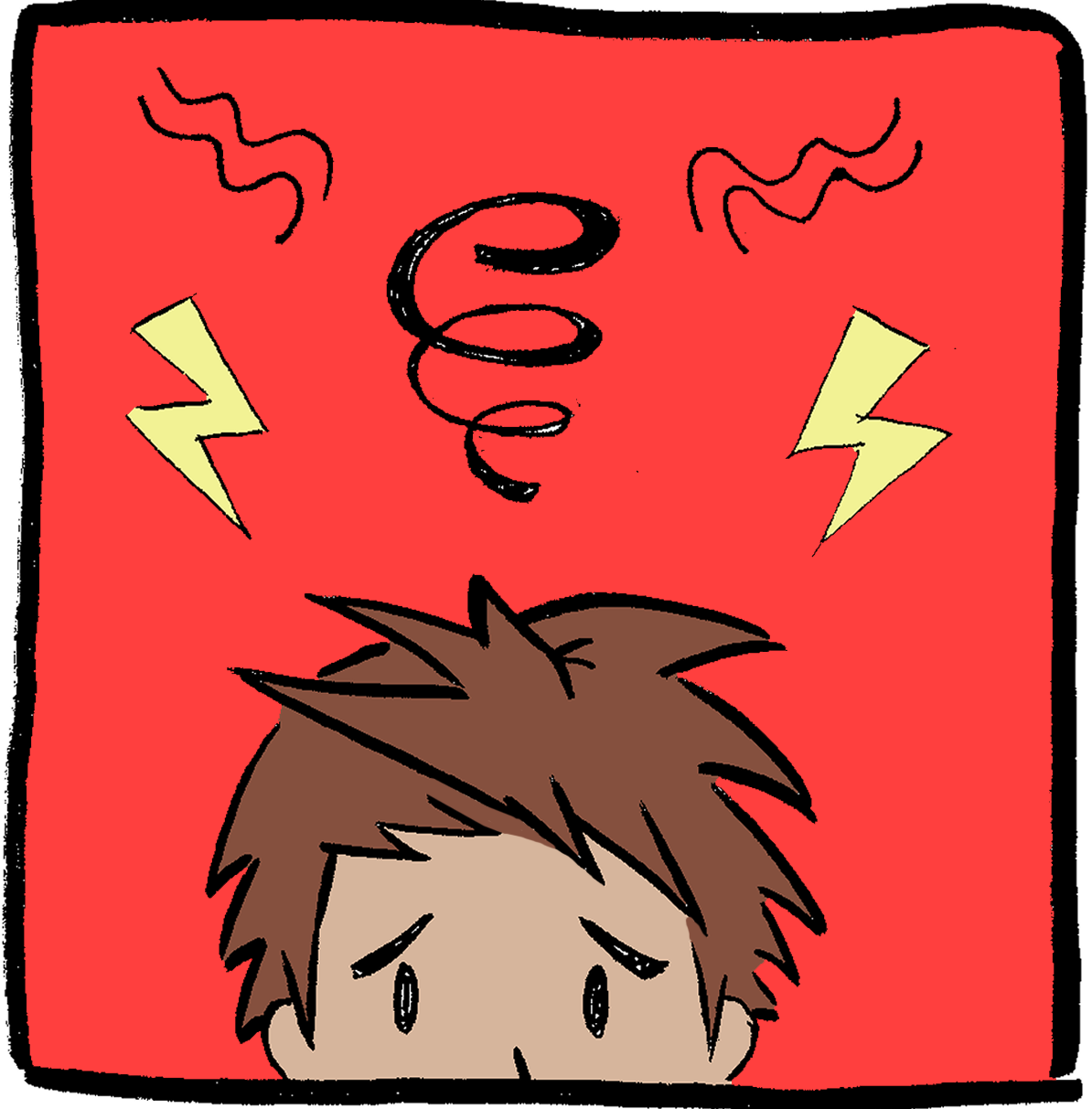Dealing with emotions
There are lots of different feelings and emotions. There some emotions that can feel tricky to deal with sometimes. Find out more about some of these.
Worry, stress and anxiety
You're not alone, lots of students feel this way and it's perfectly normal!
Find out more about worry, stress and anxietyLow mood and depression
We all have ups and down. Most of us experience ups and downs from time to time. but sometimes these feeling last longer...
Find out more about low mood and depressionAnger
 Occasionally feeling angry can be healthy, but always feeling angry is not good for you. You may risk damaging a friendship or a relationship that you care about. Or you could get into trouble.
Occasionally feeling angry can be healthy, but always feeling angry is not good for you. You may risk damaging a friendship or a relationship that you care about. Or you could get into trouble.
It’s important to know the difference between feeling angry from time to time and feeling angry all of the time. We all feel angry sometimes and that’s OK, but feeling angry all of the time can be a sign other things, like loneliness or depression.
Anger is an important emotion. Anger:
- tells you that your needs (or someone else’s needs) aren’t being met
- tells you that you (or someone else) may have been treated unfairly or disrespectfully
- it’s healthy to say what makes you angry
- bottled up anger can become explosive and affect important relationships
- it’s OK to feel angry as long as you don’t hurt others, yourself or property
- Anger at things like injustice or inequality, if channelled, can change the world!
How to tell what makes you angry
Here are a few things you can do to help you understand why you feel angry:
- write down a list of things and situations that make you feel angry
- write down a list of early warning signs in your body you’re getting angry, so you can recognise the signs and be able to calm down.
How to release anger in a positive way
Finding a way to cool off when you’re angry is important. Different things will work for different people, so try a few things to find what works for you:
- go for a walk or run to let off steam
- write out how you’re feeling and tear it into lots and lots of tiny pieces…
- throw balled up socks at the wall
- listen to your favourite music
- find a quiet place to take a break and take a few moments to breathe / relax
- express your feelings through creativity
- talking to a trusted adult about your feelings can help.
Loneliness
 Loneliness and isolation are feelings you may experience if you feel disconnected from the people around you.
Loneliness and isolation are feelings you may experience if you feel disconnected from the people around you.
It’s common to feel lonely sometimes, but it can become unhealthy if the feelings last.
If you’re experiencing loneliness, you may feel
- unloved
- like you don’t fit in
- excluded from a group (e.g. your peers, family or society)
- like you don’t have any friends
- like you can’t adjust to a new environment (e.g. a move, a new school, staying inside during lockdown
- distant from friends and family
When you experience loneliness for a long time, it can lead to depression.
It’s important to talk to someone about how you’re feeling. Talk to a trusted adult or go online / call a helpline
How can I feel better?
If you’re feeling lonely or isolated, here’s some things to keep in mind:
- Remember you’re not alone: almost everyone feels lonely from time to time — lots of people feel the same way you’re feeling right now.
- It’s OK to feel lonely sometimes. But remember, if and when you need it, help is always available.
Here are a few things that may help
- join a new group, club or team
- learn a new hobby or pastime
- try meeting new people online (while practising online safety)
- volunteer / get involved in a campaign
- get outside (especially in nature) / exercise. Sitting at home can make you feel worse (lockdown allowing of course!)
It can be scary to try some of these things and may take some time and effort but it could a make a big difference.

